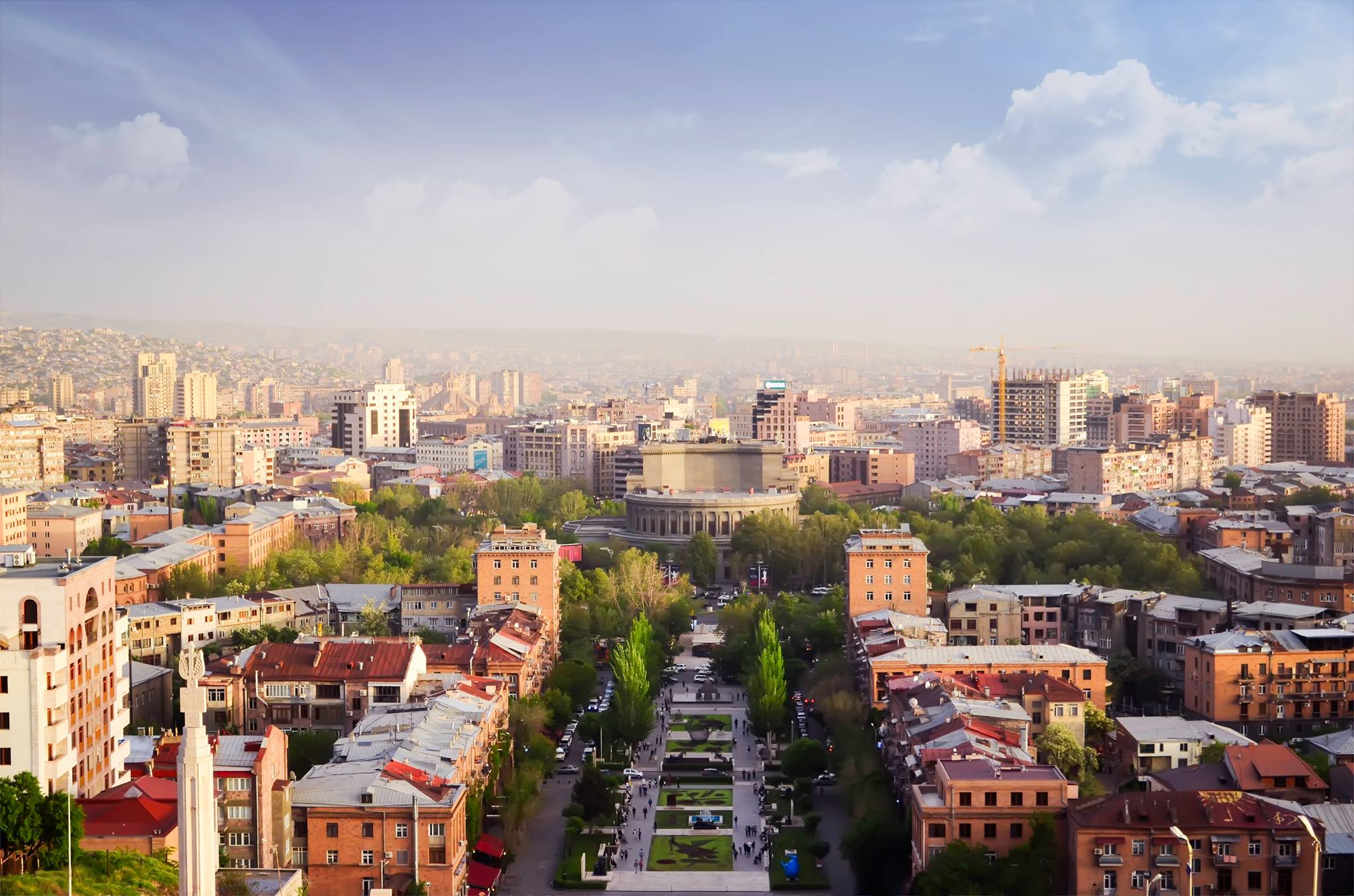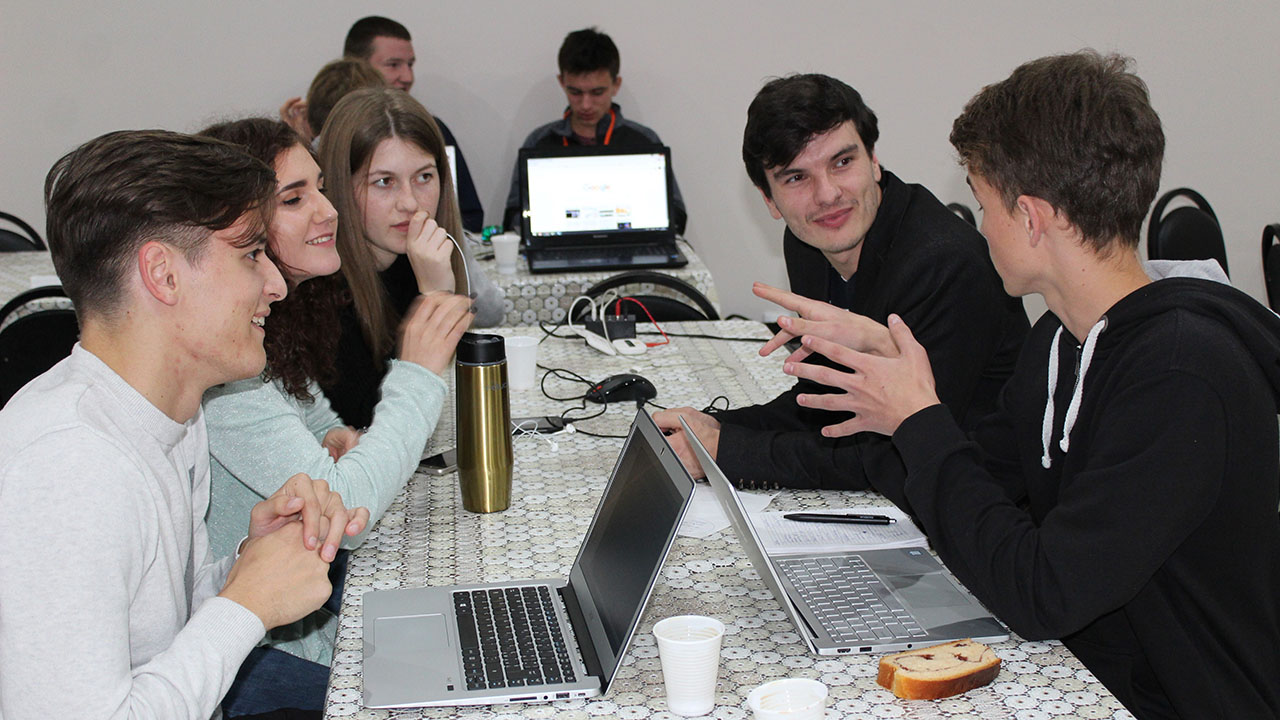Working among the unreached
Every city in the world needs Christians committed to living out the gospel. But the overwhelming majority of graduates end up living in a city where there are already many Christians and thriving churches, while millions of unreached people continue to live beyond the reach of the gospel. Staggeringly, a third of the world’s population are still living outside the reach of a church.
Some graduates have prayerfully and proactively chosen to live and work in places where they can bring God’s light to those living in darkness. Read on to meet graduates who have done just that.

East Asia: A new direction
After graduating Sophie* landed the job of her dreams. But before long she started to feel uncomfortable. She felt that her job mattered more to her than Jesus. And it didn’t satisfy.
A few months later Sophie heard about a short-term mission trip taking Bibles in to a country in East Asia. It struck a chord with her. She’d always loved exploring new countries and cultures, and she signed up to go. But she didn’t expect those two weeks to have quite such a significant impact on the direction of her life.
Fast-forward one year and Sophie is now preparing to go back for the second time. This time she’ll stay for at least two months. She’ll be working with a Christian organisation doing a job that encompasses her skills, experience and passions: nursing, food research and environmental sustainability, all in one.
Sophie leaves a lot behind. And it’s a dangerous place for Christians to live. Is it really worth it?
“Yes, it’s worth it, because Jesus is worth it”, Sophie says. “I’m very conscious of how much the Lord has done for me. I have no reason not to trust Him. He’s always provided for me. And this opportunity seems tailor-made for me!”
Would it not be easier just to go back to the job of her dreams?
“The world tells you to get the best job you can. And I did that at first, but it didn’t satisfy. The only thing I want now is to seek first God’s kingdom and righteousness.”
*name changed

Moldova: Bringing hope home
In Moldova, around four out of five graduates move abroad in search of a well-paid job and a better quality of life. But Tanya didn’t. After completing her Masters studies in mathematics, Tanya and her husband (who was working as a policeman) felt that God was calling them to go back to their village to live and work.
They said goodbye to their comfortable city life and moved back to the village. No running water. No sanitation system. No heating during the cold winter months.
Tanya started working as a maths teacher in a high school. She got involved in the lives of the pupils there. They were needy. Some of them were living with alcoholic parents. Others were being brought up by grandparents or other relatives.
Tanya began to pray for them. After class she’d talk to them, give them attention, encourage them and show them the love they were lacking.
Tanya and her local church now help children from socially vulnerable families every week. They organise activities through which they can share the gospel, and they help them with their homework.
Praise the Lord for such graduates, who were missionaries amongst students during their student days, and now have chosen to take the gospel back to their villages.

South Asia: Bringing Jesus to places where He is not yet known
After graduating, my church went through the journey of Paul’s life. As I sat there every Sunday, I was challenged. Paul’s life was far from comfortable. A life truly following Jesus is not meant to be centred on comfort and worldly security. But at that time, my life was heading in that direction; it challenged me and made me uneasy.
So when I graduated about four years ago, my husband and I decided to move to a mega-city in South Asia. We started a company to raise health awareness. We see ourselves as business owners who love Jesus.
For us, our business is both our work and our ministry. We work eight hours every day alongside our employees who don’t know Jesus. Daily, we are faced with challenges of cultural misunderstandings, corruption and fraud. Our employees see how we face these challenges with God, and when they see Jesus in us, it is life-changing.
Families and friends are not always supportive. It seems crazy to them for us to leave behind a good job and home. And that can be tough. But when life gets hard, I look around me: most of my local friends here live close to poverty and desperately need to know of the freedom of life in Christ. Our Father sees this and He is calling out for disciples to go to these nations. We consider it such a privilege and an adventure to partner with God to bring Jesus to places where He is not yet known.
Ireland: Being intentional in the workplace
When I heard the local hair salon was advertising for a junior stylist, I decided to apply. It wasn’t a great career move. I could have earned more money working for a big chain. But my church had a real heart for reaching out to the community, and I thought this would be a good way to meet local people.
As I started the new job I wanted to see the salon as my mission field. I wanted the way I worked and the way I spoke to point my clients and colleagues to Jesus.

In my hometown, when you go to get your hair cut you’ll always be asked the same questions: why are you getting your hair done? Are you going somewhere nice tonight? But I wanted to really get to know people, so I tried to stay away from those dead-end questions. I would ask things like, ‘How’s your week been going?’ or ‘What have you been up to today?’ Then I’d try to remember to ask about those things the next time they came in.
I found it hard at first. But I’ve become a bit more comfortable with taking risks in conversation. The way I talk about what’s happening in the news, or what I did at the weekend — those can be opportunities to speak about Jesus. Maybe they’ll think I’m weird — but maybe they’ll ask questions and want to know more.
Moving strategically
In our increasingly globalised world, taking the gospel to the nations doesn’t necessarily mean going overseas. Universities are places where the nations are coming to us in vast numbers. Are there international students in your classroom or dormitory that you could get to know better?
And as you prepare to graduate, why not prayerfully consider moving strategically to a gospel-starved country or city or village? Could you use your degree and skills in a place where most people don’t yet know Jesus? Could you do business, teach in a school, work in a hospital or do further education in an unreached place?
It might not be easy, but, as Sophie says, it’s worth it.





